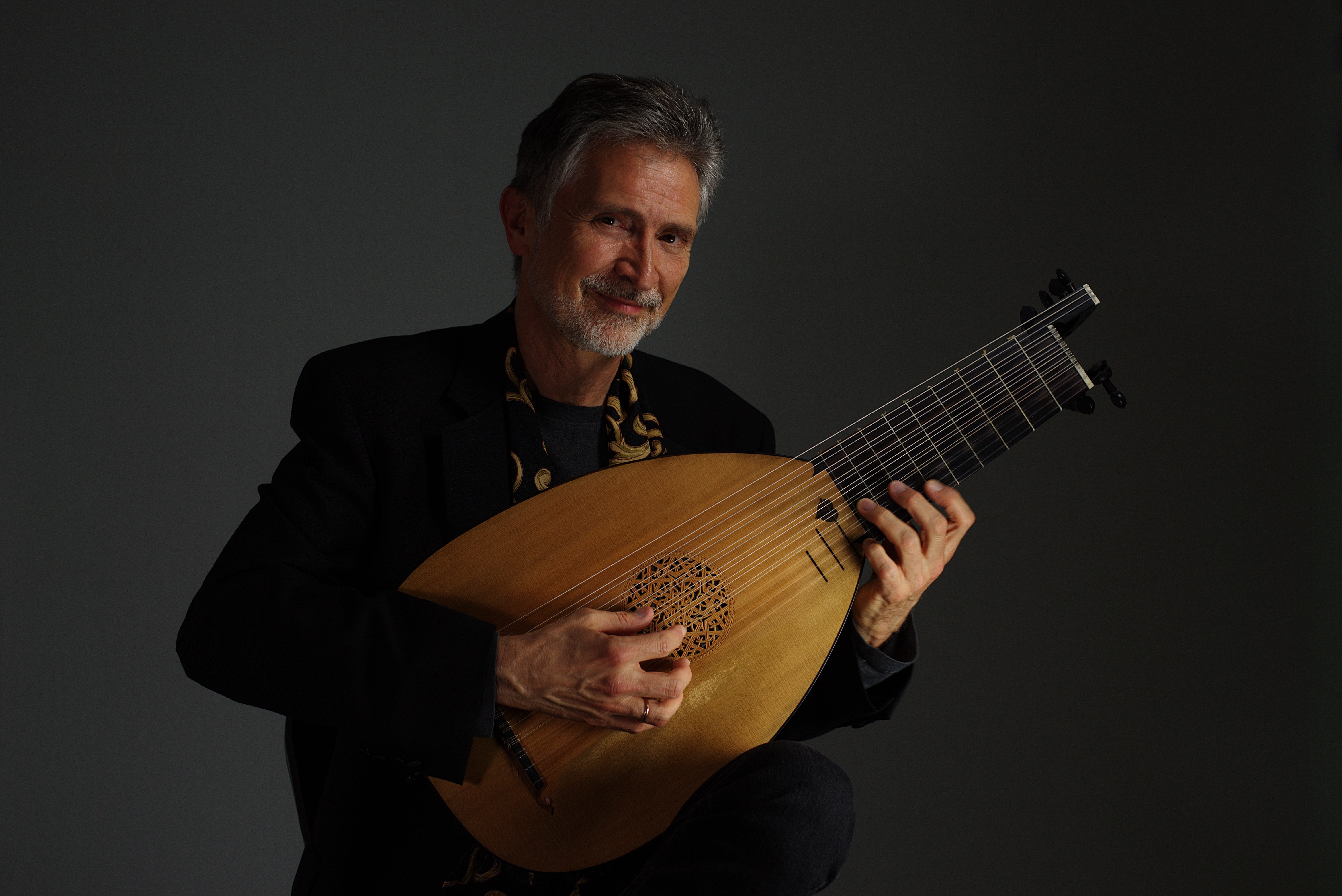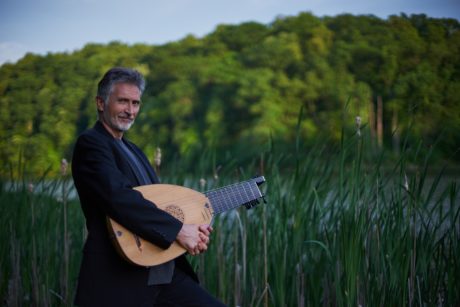When asked to picture a lute, the average 21st-century music fan might envision an illustration from a medieval illuminated manuscript, depicting someone in tights, maybe some sort of tunic and floppy hat, holding an instrument that’s like a guitar, but different. And while that image isn’t exactly incorrect, it barely scratches the surface of what the lute can be—at least according to lutenist Ronn McFarlane, who may be the instrument’s most passionate modern ambassador.

McFarlane, who was born in West Virginia and raised in Ellicott City, MD, got his musical start in a manner not atypical of teenage boys: he wanted to become a rock star. “I became passionately interested in music at age 13, when I heard a group of classmates playing ‘Wipeout’ by the Surfaris,” says McFarlane. Eventually, he began setting his musical sights in the past. He took up classical guitar, originally as a way to improve his rock technique, but unexpectedly, his interest in classical music eclipsed his dreams of rock stardom.
That was mostly due to his discovery of Renaissance and Baroque music, originally written for lute and arranged later for the guitar. “I gravitated toward the lute and wanted to hear how this music might have sounded on the instrument for which it was originally composed,” explains McFarlane. “The Renaissance pieces I play have a musical connection with the folk and rock music I played as a teen. They often use the same scales or modes, tend to have a lot of rhythmic propulsion, and have the opportunity for improvisation.”
Not only does lute music from the Renaissance share similar impulses with rock music; lutenists themselves were, apparently, the rock gods of their day
Not only does lute music from the Renaissance share similar impulses with rock music; lutenists themselves were, apparently, the rock gods of their day. Take this description of 16th-century lutenist and composer Francesco da Milano, which McFarlane quotes in the engagingly-written history of the lute on his website:
“Changing his style of playing with a gentle force, he returned the spirit and the senses to the place from which he had stolen them, not without leaving as much astonishment in each of us, as if we had been elevated by an ecstatic transport of some divine frenzy.”
McFarlane’s mission, if not to transport listeners into a divine frenzy, is to bring the lute into today’s musical mainstream and make it accessible to modern audiences. And McFarlane, a musical omnivore if there ever was one, works to fulfill that mission by performing music of the past alongside music of the present, much of which he writes or arranges himself. “[The lute] could be made even more accessible by composing, arranging, and performing music of our own time, including some music that is already familiar to modern ears.”
When the Folklore Society of Greater Washington presents McFarlane in concert at the Lyceum in Alexandria on October 19, folk music will dominate the program—specifically, folk tunes from Ireland and Scotland, drawn from McFarlane’s most recent solo album The Celtic Lute. “I’ve had a great love for Celtic music since the 1970’s, hearing groups like the Chieftains and The Bothy Band,” says McFarlane. “I undertook to make arrangements of some of my favorite Irish and Scottish tunes that had never quite made it into the historical lute repertory—an oversight, I’m sure.”

Also on the program are some original works of McFarlane’s, which incorporate influences from his great loves, Renaissance and Celtic music, but that’s only the beginning. “Gradually all the different kinds of music I have loved came to influence my writing. You’ll hear Americana and bluegrass, Impressionism, progressive folk, and even some music that borrows the harmonic language of Aaron Copland,” McFarlane promises. And if that’s hard to imagine, it’s because McFarlane’s unique sound is difficult to describe—much like the sound of the lute itself. “The lute has its own individual character of sound and a subtlety that can’t be completely described in words,” admits McFarlane. “You need to experience the sound in person.”
Ultimately, McFarlane wishes to spread the gospel of the lute, not only for its own sake, but because he believes it can fill a pressing need for humanity. He says that he wishes he were asked more often about what music is to him at its deepest level, and what the lute itself represents in the modern age. In response to his own thorny question, McFarlane responds, “Music is vibration with a feeling, consciousness, or intention. So are we, as humans. The lute points toward the inner quiet we can have, even in a clangorous age.”
Ronn McFarlane at the Folklore Society of Greater Washington performs Friday, October 19, 2018, at The Lyceum, 201 S. Washington St., Alexandria, VA 22314. Tickets can be purchased at the door, and are $25 for the general public and $10 for FSGW members.




